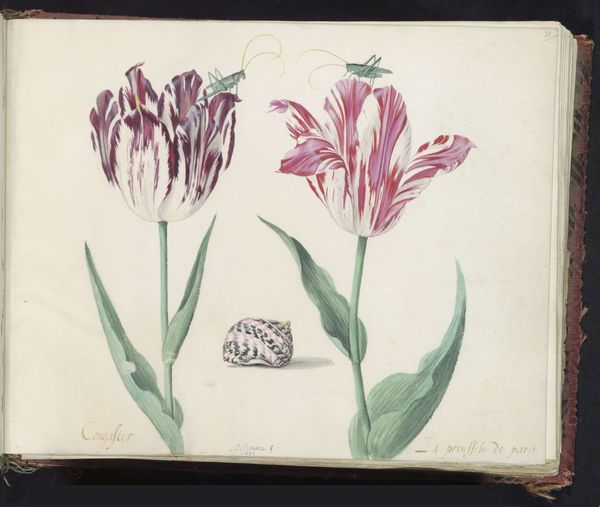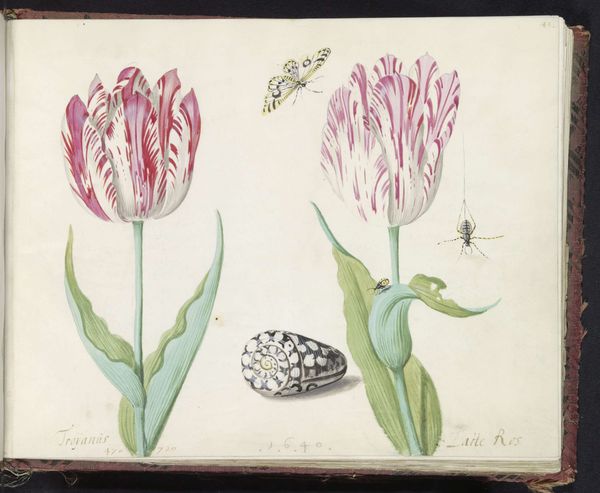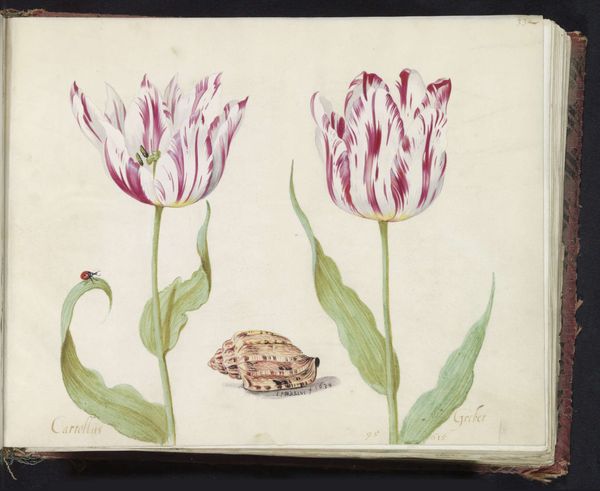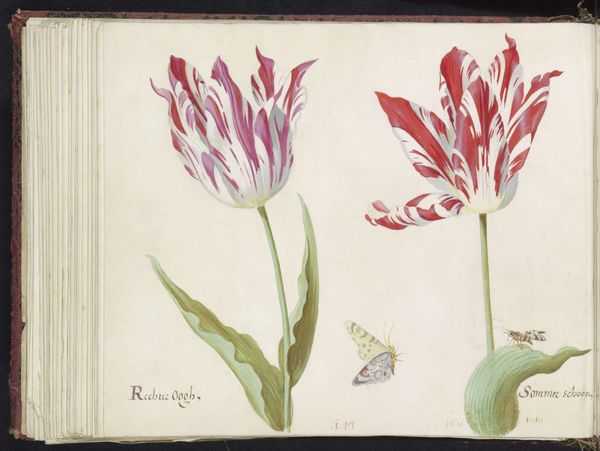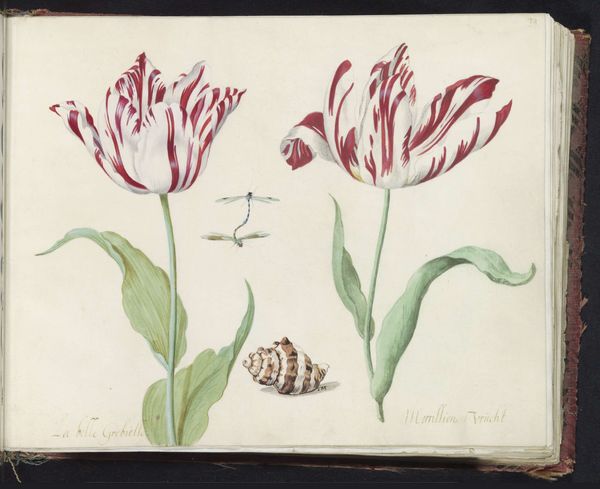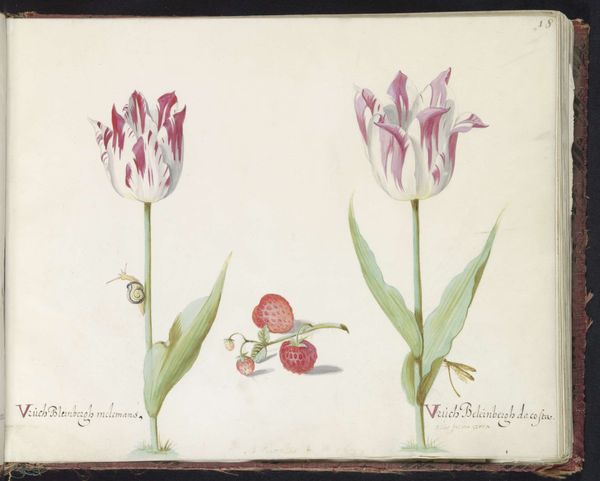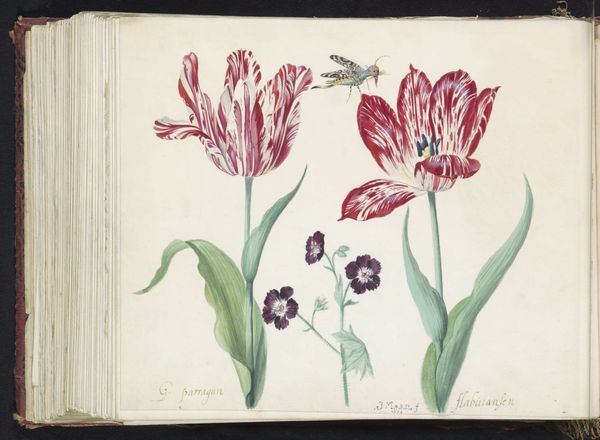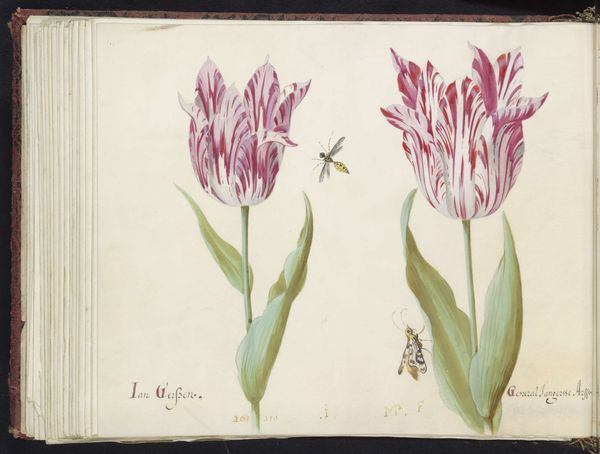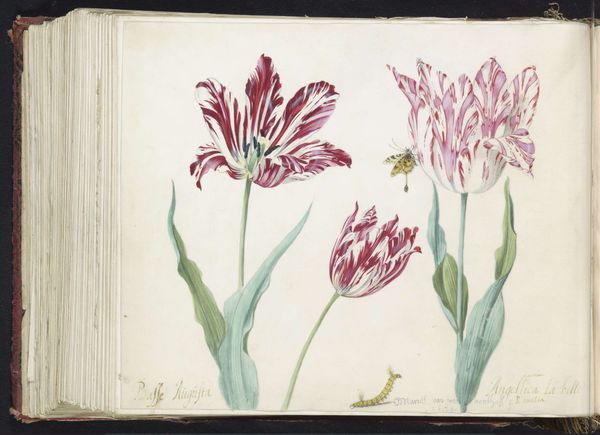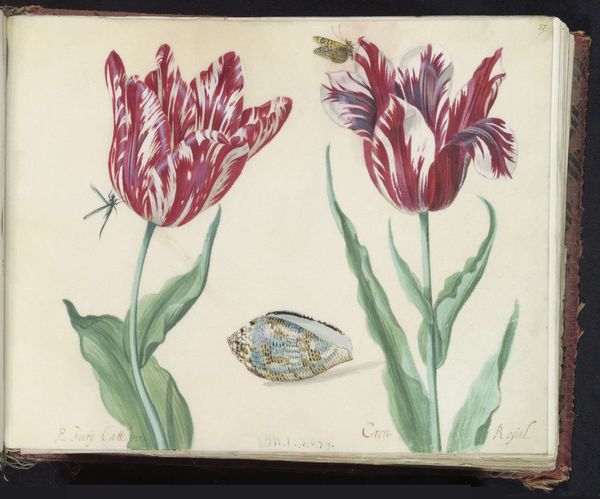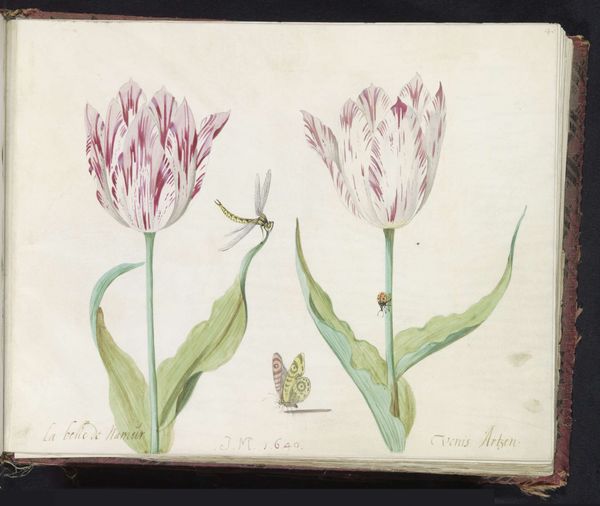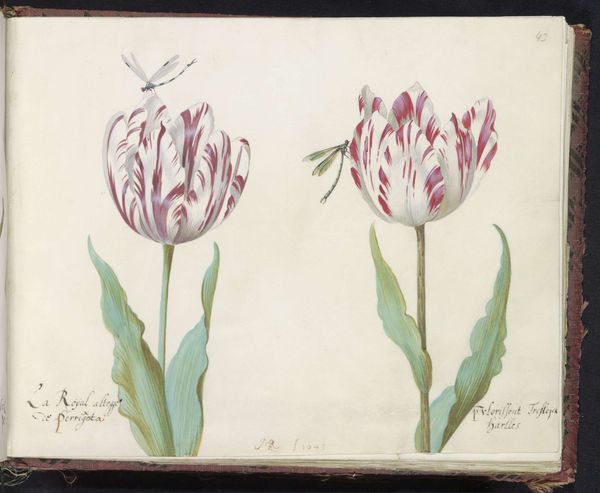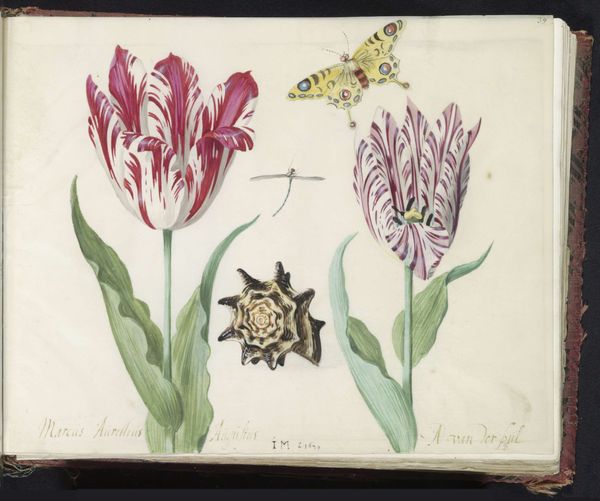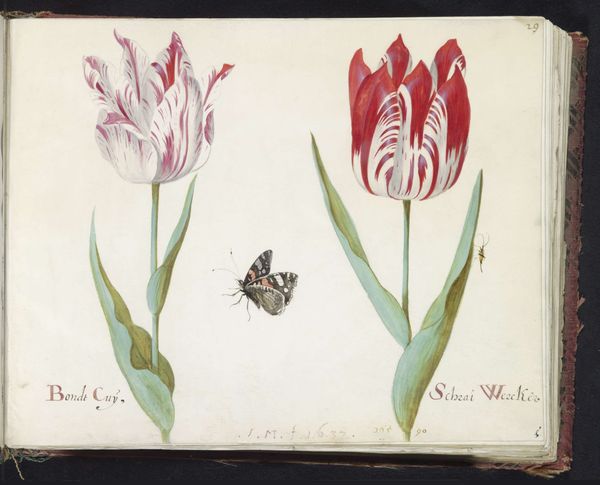
painting, watercolor
#
dutch-golden-age
#
painting
#
figuration
#
11_renaissance
#
watercolor
#
coloured pencil
#
botanical art
#
watercolor
#
realism
Dimensions: height 265 mm, width 335 mm
Copyright: Rijks Museum: Open Domain
Editor: Here we have "Two Tulips with a Snail, Moth and Two Insects" by Jacob Marrel, dating to around 1640. It’s a watercolor piece. I am struck by how carefully observed the tulips are, along with all the little critters! What do you notice? Curator: Well, considering Marrel's position, we need to consider the tulip not just as a flower, but as a commodity. The 17th century witnessed "Tulip Mania." The materials used here - watercolor, inks, the paper itself - these were tools in a very real economic game. Editor: An economic game? Curator: Absolutely. These meticulously rendered images weren't merely pretty pictures. They documented and potentially drove demand for specific, highly valuable bulbs. Consider the intense labor to create these intricate depictions. Do you think that labor is reflected in how we value it today? Editor: That's a perspective shift. I was focused on the beauty, not the economic engine behind it! So the act of painting these became a form of, like, advertisement? Curator: Exactly. It blurs the lines between art, craft, and commerce. The value wasn’t just aesthetic. It was tied to the global trade, and the backbreaking work in cultivating these rare species. Do you think someone viewing it then would be so interested in the flowers or in acquiring that exact cultivar? Editor: Wow, I will never look at a still life the same way! It makes you wonder about all the labor and market forces that influenced even the seemingly innocent art from that period. Curator: Indeed, we've explored the layers of production and social context embedded in something as seemingly simple as a floral still life, providing an insight into the era's economy.
Comments
No comments
Be the first to comment and join the conversation on the ultimate creative platform.
